The Center for Collaborative Conservation has announced its eleventh cohort of the Conservation Fellows Program. In partnership with the Warner College of Natural Resources Diversity and Inclusion Program, the 2021 request for proposals encouraged participation from underrepresented groups and projects that engage marginalized communities that are typical underserved.
The CCC’s 18-month fellowships challenge and train students, faculty and conservation practitioners to engage with communities to enhance community livelihoods and conserve landscapes, while supporting collaborative education, practice and research at Colorado State University.
This cohort is made up of seven fellows working on equitable access to protected areas for disabled and under-represented communities, living with carnivores in a pastoralist society, and clean water in the South Platte River in low-income communities of color in Denver and Adams counties.
The CCC awarded $42,300 to this cohort, including a contribution from WCNR, to support their research, engagement with collaborators and participation in Fellows Program trainings such as stakeholder analysis, power dynamics and project evaluation. This cohort of Fellows will be working in Brazil, Tanzania, and Colorado.
CCC Fellows Program: Team Projects
South-South and South-North Collaboration on Urban Protected Areas Accessibility and Access in Brazil and Northern Colorado
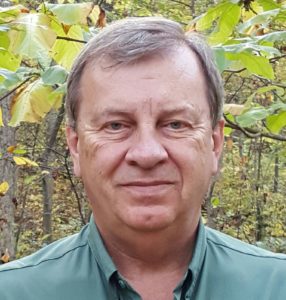
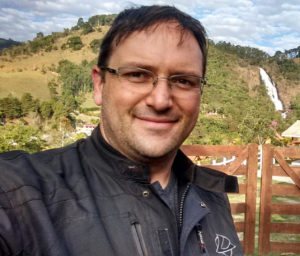
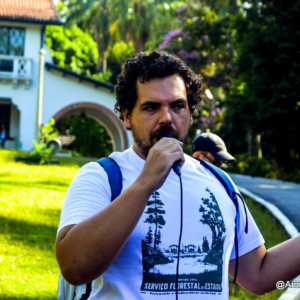
This project compares and contrasts two urban Brazilian protected areas experiences in environmental education, justice and accessibility with that of Colorado Front Range urban protected areas. The main goal of the project is to develop strategies for urban protected areas to improve access to, and accessibility for, people with disabilities and those from lower income inner city communities that seldom visit or have access to protected areas. Collaborators include: SESC (Commerce Social Service) in Brazil, INPA (National Research Institute of the Amazon) in Brazil, CSU’s Center for Protected Area Management, and additional collaborators from academia municipal, state and federal protected area managers in Brazil and Colorado’s Front Range.
Engaging youth in pollution reduction planning in a historically disadvantaged community on the South Platte River, Colorado
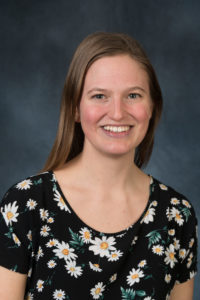
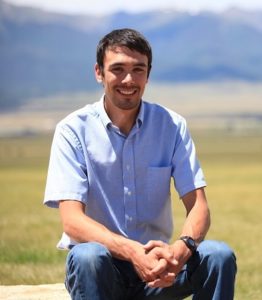

This project aims to restore swimmable and fishable water quality standards to an impaired river while simultaneously training the next generation of leaders in collaborative conservation. The project will empower five CSU underrepresented minority (URM) undergraduate students to engage with a collaborative community-driven project to reduce Escherichia coli(E. coli) in Segment 15 of the South Platte River. The fellows will mentor and train the five CSU URM students in critical water issues, urban water best management practices, and socioeconomic outcomes of urban conservation projects. The Fellows and students will work with collaborators Shane Wright (Lincoln Hills Cares) and Paul Hellmund (El Laboratorio) who have received funding to facilitate a community-created pollution reduction plan in Denver and Adams Counties.
CCC Fellows Program: Individual Project
Evaluating the efficacy of collaborative conservation education on shaping carnivore tolerance in Tanzania
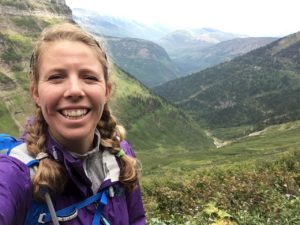
Human-carnivore conflict is among the most significant threats to African lions. Across Africa, this conflict typically involves livestock depredation and retaliatory carnivore killing by livestock owners. Because these negative carnivore experiences are shared across wide social networks, such as among friends and families, they play a tremendous role in shaping children’s tolerance of carnivores at individual, community, and landscape scales. This project addresses the question: What role can formal and informal conservation education play in shaping children’s carnivore tolerance to better inform targeted conservation interventions? Collaborators for this project are: the Ruaha Carnivore Project, the Harris Elementary School in Fort Collins, Colorado; and the Human Dimensions of Natural Resources Department at CSU.
2020 Fellows cohort success
CCC Fellows Cohort 10 established spring 2020, focused on a special topic: reintroduction of wolves to Colorado. Prior to this year’s election where Colorado voters approved wolf reintroduction, Fellows in Cohort 10 gave their perspectives on the ballot proposition in three online essays:
- Bias and Cultural Consequences in Conservationby Alex Few.
- Breaking Down Barriers and Reducing Conflict Over Wolves in Coloradoby Mireille Gonzalez, Matt Collins, and Taylor Heid.
- A Path Forward for Wolves: Lessons from Past Reintroductionsby Brielle Manzolillo.
For more information about CCC’s Conservation Fellows Program, see the CCC Fellows Program web page or contact Kim Skyelander, kim.skyelander@colostate.edu.
The Center for Collaborative Conservation, part of the Warner College of Natural Resources at Colorado State University, values conservation impact, honoring diversity, shared learning, a commitment to relationships, and accountability and excellence. We are proud to partner with the WCNR Diversity and Impact Program to put these values into practice. The CCC’s mission is to build the capacity of organizations, communities, and future leaders to achieve conservation impact, while applying Colorado State University’s world-class research and education.